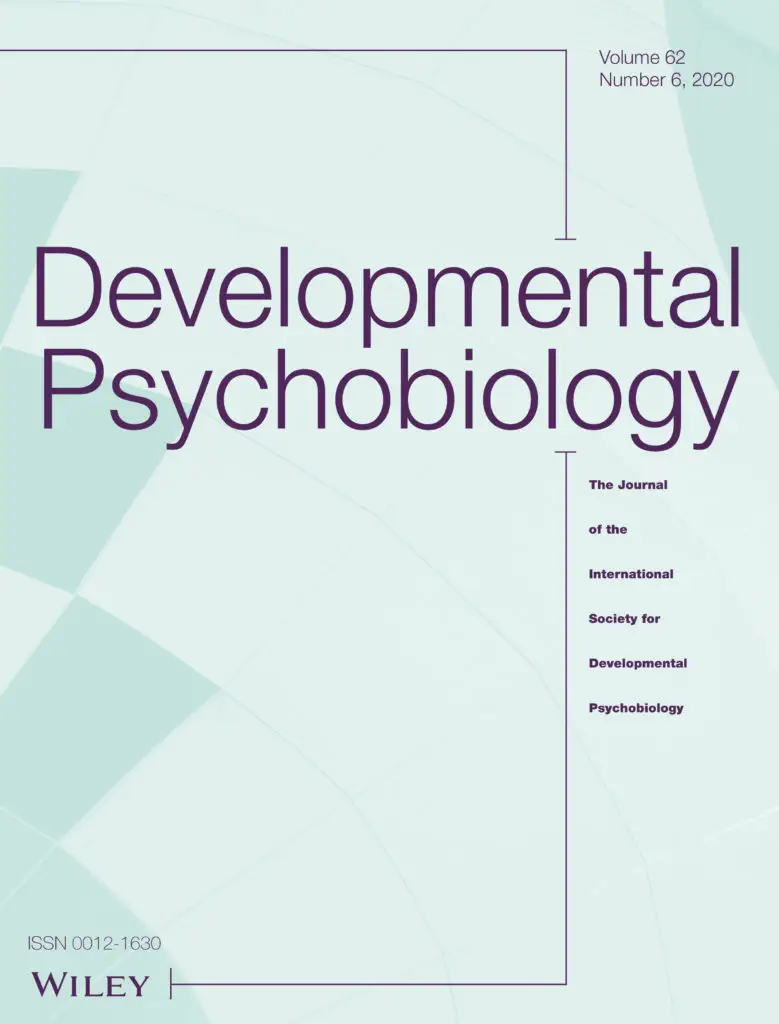A special issue of the Journal of Developmental Psychobiology, guest-edited by Kalina Michalska, Ph.D. (UC Riverside), Steve S. Lee, Ph.D. (UCLA), and Elizabeth Moroney, C.Phil (UCLA), will be devoted to articles investigating developmental aspects of threat and safety learning.
Species rely on associative learning mechanisms to adaptively learn which circumstances predict imminent threat and which provide protection from impending danger. This is necessary for survival and self-preservation. Yet, empirical advances in affective learning and treatments of threat-based disorders have largely been developed on the basis of mature circuitry and function. The goal of this special issue is to bring together cutting-edge research and theory regarding how to conceptualize development as an important context in which threat and safety learning occur, with particular interest in studies focusing on biological change that consider interactions with socio-cultural and environmental factors. We also invite submissions examining how learning is potentially affected when normative developmental trajectories are disrupted, for example, by exposure to external stressors, such as the Covid-19 pandemic, early maternal deprivation, discrimination, or violence exposure, which may alter sensitivity to threat-related information in the environment. We are particularly committed to promoting scholarship that addresses inequality and other issues representing underrepresented minority groups. Our issue aims to represent different approaches to the study of threat and safety learning. To that end, cross-species developmental approaches will be encouraged and prioritized. To represent diverse and interdisciplinary perspectives, we welcome submissions from scholars at all career stages, from student trainees and postdoctoral researchers to early-career and senior faculty across fields in developmental and clinical psychology, biology, neuroscience, and affiliated fields.
All articles will be expected to provide both novel theoretical contributions and strong empirical methodology. As the goal of this special issue is to encourage scholars to consider how development can be incorporated into the study of threat and safety learning, all authors will be asked to address the following questions in their Introduction and Discussion sections:
- In what ways does your research consider developmental influences for threat and safety learning? Alternatively, what approach does your study take to conceptualizing and operationalizing development and threat and safety learning?
- How does your study present a novel approach to operationalizing or conceptualizing threat and safety learning in developmental research?
- What is the relevance of considering the developmental period/phase of your subjects on research on associative threat and safety learning, particularly as the developmental period relates to your research questions and data interpretations?
- To be addressed in the Discussion section: what specific areas of further research in the area of development as a context for threat and safety learning does the study indicate?
Submission: In order to be considered for the special issue, authors must first submit a 500-word abstract to the Developmental Psychobiology Editorial Office at [email protected], by 10 October 2020. Abstracts will be evaluated by the special issue editors, and invitations for full submission will be sent to the authors by 30 October 2020. Invited manuscripts should be submitted by 30 January 2021 for planned publication toward the end of the year. Inquiries, including questions about appropriate topics, may be sent electronically to Kalina Michalska ([email protected]), Steve Lee ([email protected]), and Elizabeth Moroney ([email protected]).

